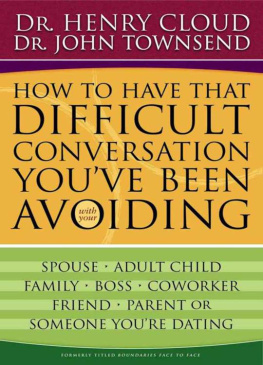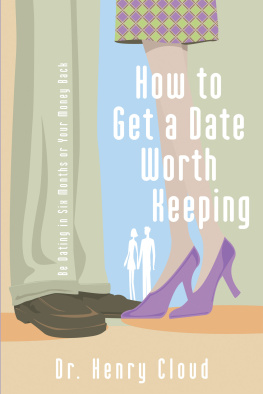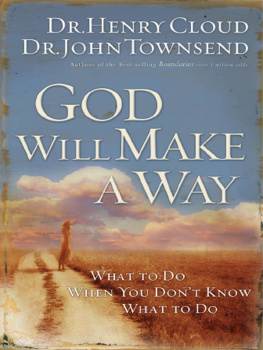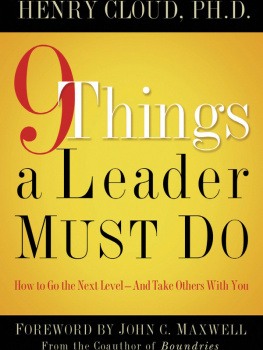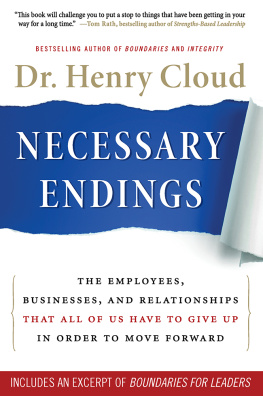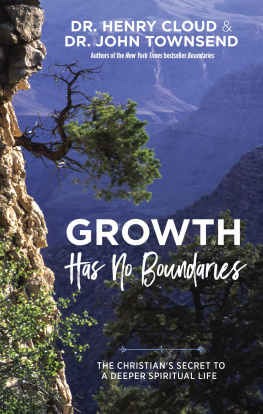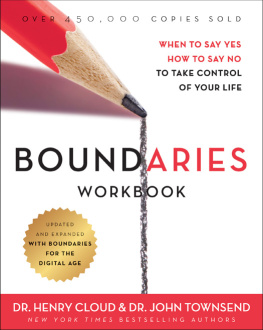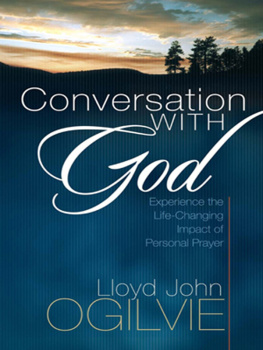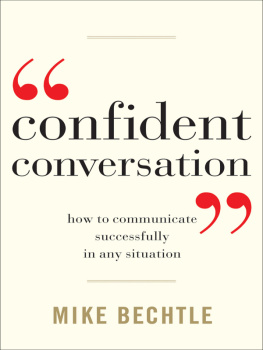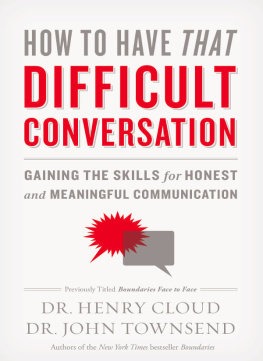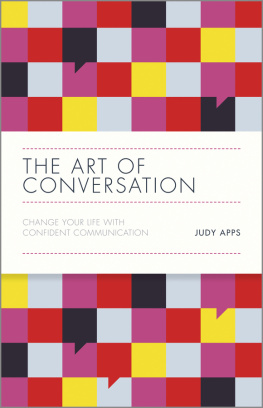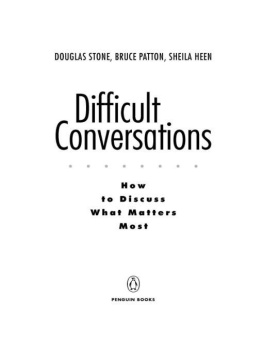
To all those who seek to make truthful conversations a central part of all their relationships.
Contents
Part I
Part II
Part III
Part IV
Part V
Acknowledgments
Sealy Yates, our agent, for his own commitment to truth and love.
Scott Bolinder , our publisher, for supporting and partnering with us in this work.
Sandy Vander Zicht , our editor, for her expertise and her genuine care about seeing people grow and mature.
Maureen Price, director of Cloud-Townsend Resources, for her appreciation for the value of boundaries face-to-face.
Denis Beausejour , director of Answers for Life, for his vision and commitment to the process of helping others find Christ and experience the life Christ designed.
The attendees of Monday Night Solutions in Irvine, California, for their faithfulness in seeking God and helping us develop the concepts that ended up in this book.
We never foresaw how well our book Boundaries: When to Say Yes, When to Say No to Take Control of Your Life was going to do. Although we knew through our clinical work that many people identify with the need to regain control of their lives, we had no idea how widespread that need was. Almost everyone feels the need for better boundaries at one time or another.
Sometimes we need to deal with a difficult person in a relationship, such as a controller, a manipulator, or someone who is irresponsible or even abusive. At other times we need to figure out what demands of life to say no to so we wont overextend ourselves. At still other times we need to work out better patterns of intimacy and relatedness in a good relationship, or take a stand for our values in a difficult one. Still other times, we might need to keep someone from taking over more of our time, energy, and resources than we would like to give. There are many, many different contexts of life in which we need to exercise good boundaries. For people who care, setting those boundaries can be tough. So it really is no surprise that Boundaries has found such a ready audience.
As a result of the books following, we find ourselves speaking to tens of thousands of people directly every year and literally millions through our radio program. When we talk to people, the theme of dealing with difficult relationships continues to surface. Resolving relational issues is always on the forefront of peoples minds.
As we answer questions, we find ourselves continually telling people that they should have a direct conversation with the person with whom they have the problem. They repeatedly say either, Ive tried that, and it didnt work, or, How would I do that? Either they have tried and found themselves overpowered or outmaneuvered, or they just dont know how to broach such a conversation. So we often tell them to role-play with us. We say, You be him or her and Ill be you. Now go. When we show them how to have such a conversation, the lights go on for the first time. They often say things like I never thought about saying it like that. That makes all the difference in the world. Now I know what to do.
Many people in the audience who observe the role-playing tell us the same thing. Just hearing how to do it gives them a process to follow, and they can go forward with more confidence that they will be able to resolve a tough issue.
This book shows readers how to do that, how to have a boundary conversation. Most people know that they need to set boundaries with someone or have a difficult conversation with someone, but few know how to do it well. Some are so afraid, they never try; others try and fail dismally; still others do it in a way that does more harm than good. For that reason, people put off confronting, setting boundaries, or facing into difficult conversations. As a result, their relationships suffer.
For many people, setting boundaries or confronting someone has gotten a bad rap. Yet, both the Bible and research show that confrontation is essential to success in all arenas of life. Successful people confront well. They make it a part of the ongoing texture of their relationships. They face issues in their relationships directly. In fact, the Latin word for confront means just that: to turn your face toward something or someone.
We hope this book will return confrontation to its proper positive role in the language of love and relationship. We will show that setting boundaries, confronting, and having that difficult conversation youve been avoiding is not adversarial, but one of the most loving things you can do. We will show that it is the only way to have the relationship you desire, whether in marriage, dating, friendship, family, or work. And if you learn to have those difficult conversations in a loving, honest, and responsible way, your relationships can become better than you ever thought they could.
This book will show you the benefits and essentials of a good conversation, how to have that good conversation, how to prepare yourself before you have the conversation, and how to have it with the various people in your lives.
Our prayer is that this book will guide you toward specific conversations in both your difficult and delightful relationships. This will be a how-to guide to help you know how to have that difficult conversation youve been avoiding and, as a result, get more out of your relationships and your life.
PART I
Why You Need to Have That Difficult Conversation
A s we speak around the country at conferences on relationships, we will often hear some version of the following story.
A man will come up and say, Thanks for your materials on setting limits and boundaries. They have changed my life and my marriage.
We will say, Thank you, too. So what book did you read?
I didnt read a book, the man will say. My wife did!
He will go on to explain: I was a crummy communicator with my wife. I controlled her, I had some bad habits, and I had no spiritual life to speak of. Then she read Boundaries, and she started applying the principles. Thats when things started changing for both of us. It took some time and effort, but Im really different now. We are closer, and we have more respect for each other and more freedom in the relationship. Im doing a lot better with those bad habits, and Im waking up to my relationship with God.
You would normally expect someone to talk about a book he has actually read. However, this mans unexpected response illustrates a reality: The person who has the problem in a relationship often isnt taking responsibility for his problem. This was bad news for the mans wife. She wanted to see change, but he either didnt see a problem, thought it wasnt a big issue, or thought his wife was overreacting. This can leave the wife who cares for her husband feeling helpless, discouraged, and less able to feel love in her heart for him.
YOU CAN CHANGE THE RELATIONSHIP ALONE
But there is good news. Though the person with the problem may not be taking responsibility for, or owning, the problem, the person affected by the problem can change things. You may be the motivated one, the one who is concerned, sees the problem, and feels discomfort from it, whether it be a bad attitude or a bad behavior. In fact, you may be feeling more pain and discomfort than the other person. In our example, the wife, before confronting her husband, most likely had to deal with isolation, lack of freedom, his bad habits, and the emptiness of not having a spiritual partner.
Things can change when the person experiencing the effects of the problem takes the initiative to resolve it . This wife took the first step. She became aware that her husbands ways werent good for either of them and that nothing would change unless she did something herself.

